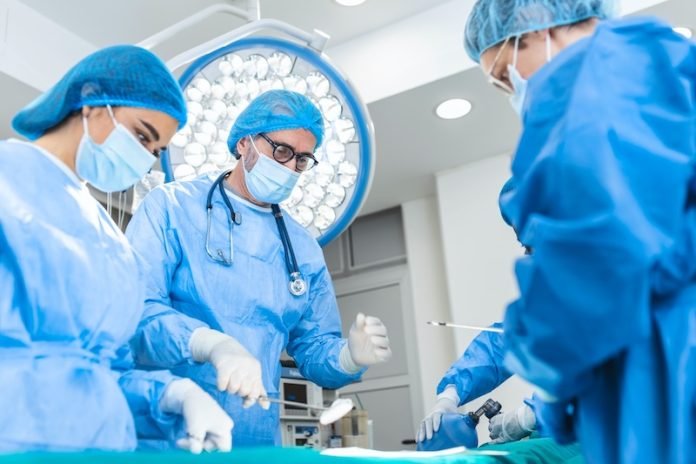
A groundbreaking study by UT Southwestern Medical Center reveals that robotic surgery offers significant advantages over traditional laparoscopic procedures for colon cancer patients undergoing colectomies – the surgical removal of part of the large intestine.
Published in the World Journal of Surgical Oncology, the study highlights several benefits of robotic surgery for these patients. Notably, they experienced shorter hospital stays and fewer complications.
One key advantage of robotic surgery was the ability to remove more lymph nodes, leading to a more precise understanding of the cancer’s stage.
Robotic surgery also led to fewer cases where the procedure had to be changed to open surgery due to anatomical challenges.
Additionally, there was a reduced occurrence of postoperative ileus – a condition where the intestine fails to contract normally, potentially causing dangerous blockages.
Dr. Patricio M. Polanco, an expert in surgical oncology and leader of the study, emphasized the rising importance of robotic surgery. He highlighted its benefits for surgeons, including better three-dimensional visualization, enhanced dexterity, and reduced physical strain.
This study was crucial in providing real-world evidence of the effectiveness of robotic surgery compared to laparoscopic techniques.
Laparoscopic surgery involves small incisions, a camera, and hand-manipulated tools. In contrast, robotic surgery uses a control console for maneuvering robotic arms equipped with surgical tools, offering a higher-quality 3D view, superior precision, and eliminating hand tremors.
To compare these two surgical approaches, researchers conducted a retrospective study using data from the American College of Surgeons National Surgical Quality Improvement Program, covering 2015-2020. This study included over 53,000 colectomy cases across the U.S.
The results were significant. For right colectomies, 71% of robotic procedures achieved textbook outcomes (defined as no complications, readmissions, or deaths within 30 days and a hospital stay under five days), compared to 64% for laparoscopic surgeries. Left colectomies showed similar trends – 75% robotic versus 68% laparoscopic.
However, for low anterior resection procedures, which involve the rectum, laparoscopy fared slightly better.
This was attributed to the complex nature of rectal resections and the longer experience surgeons have with laparoscopic methods in these cases.
Dr. Polanco highlighted the relevance of these findings, given the increasing prevalence of colorectal cancer in younger adults and the expansion of robotic surgery.
This study helps deepen the understanding of the advantages and limitations of robotic surgery, aiding patients and surgeons in making more informed treatment decisions.
This study is an extension of earlier research at UTSW, demonstrating the benefits of robotic surgery in treating pancreas and liver cancers.
Other contributors from UTSW’s Surgery department include Dr. Herbert J. Zeh III, Dr. Javier Salgado, Dr. Emile Farah, Dr. Andres A. Abreu, and Benjamin Rail, B.S. Dr. Zeh holds the Hall and Mary Lucile Shannon Distinguished University Chair in Surgery.
If you care about cancer, please read studies that low-carb diet could increase overall cancer risk, and new way to increase the longevity of cancer survivors.
For more information about cancer, please see recent studies about how to fight cancer with these anti-cancer superfoods, and results showing daily vitamin D3 supplementation may reduce cancer death risk.
The research findings can be found in the World Journal of Surgical Oncology.
Copyright © 2023 Knowridge Science Report. All rights reserved.



